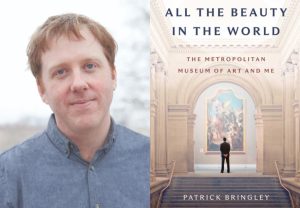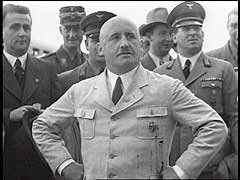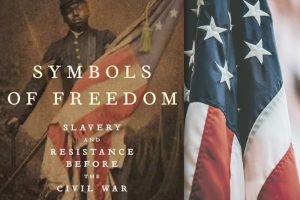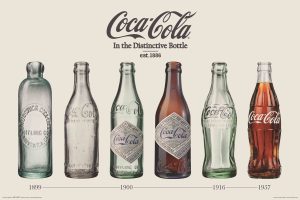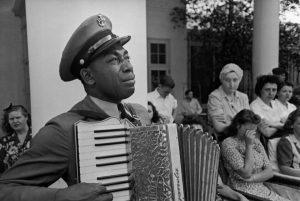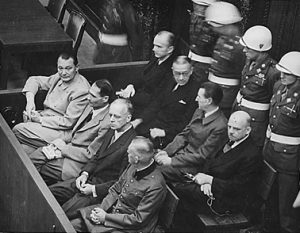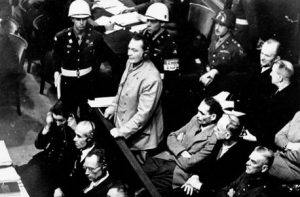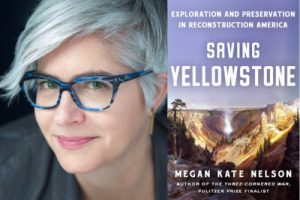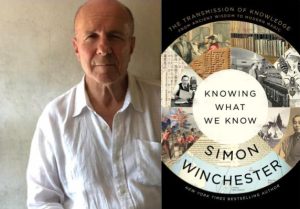Myths
All the Beauty in the Metropolitan Museum of Art: Patrick Bringley Interview
Patrick Bringley’s new book, All the Beauty in the World: the Metropolitan Museum of Art and Me, is one of the most popular books of the year. In this episode, he tells us about his experiences as a guard at the Met and his interactions with visitors there. Their reactions to the art on display,…
Read MoreJulius Streicher: Piece of Sh*t Saturday
Julius Streicher was the founder and publisher of the virulently antisemitic newspaper “Der Stürmer” – a central element of the Nazi propaganda machine. He was such a Piece of Sh*t that many Nazis thought he was too extreme. Professor Philip Nash explains why Steicher was so vile, and why he was very important in fostering…
Read MoreSymbols of Freedom: Slavery and Resistance Before the Civil War
In a time when the US flag, the Fourth of July, and historical sites have never been more contested, Professor Matthew Clavin reminds us that symbols are living artifacts whose power is derived from the meaning with which we imbue them. And he shows us in great detail how American symbols inspired enslaved people and…
Read MoreThe American South and Country Capitalism
Why do so many big and iconic American corporations come from the US South, a region traditionally considered a backwater? Dr. Bartow Elmore explains how Coca-Cola, WalMart, and FedEx used “country capitalism” to change the United States and the planet. Fascinating listening, and very illuminating analysis! You won’t shop the same way again! Episode 514.…
Read MoreMourning the Presidents
Presidential funerals have become major cultural moments in American history. But were they always this important? Dr. Lindsay Chervinsky explains how different presidential funerals have been over the centuries, starting with George Washington’s death and funeral in 1799. Each funeral she analyzes tells us a great deal about American culture at the time. All together…
Read MoreThe Nuremberg Trials: Justice for Humanity?
Did the Nurenberg Trials provide justice for humanity after the horrors of World War II? In order to address this question, Professor Philip Nash explains what happened during the trials, how well they adhered to international law, how the judgements and sentences were reached, and how well and fairly the trials were conducted. It’s far…
Read MoreThe Nuremberg Trials: Background and Build Up
Professor Philip Nash explains the extremely complicated background of the Nuremberg Trials of 1945-1946. We learn how difficult it was to set up these trials, in terms of international law, the establishment of new charges (such as “crimes against humanity”), and even the logistical difficulties in setting the trial in motion. Important legal, philosophical, and…
Read MoreSaving Yellowstone: Exploration and Preservation in Reconstruction America
Dr. Megan Kate Nelson puts us in the middle of the history and context of the founding of Yellowstone National Park, one of America’s natural glories. She tells us how it was an important part of Reconstruction after the Civil War, how explorers and bureaucrats fought over how the land should be used, and how…
Read MoreMother’s Day 2023
Mother’s Day is nearly here. The holiday has a fascinating history of its own. But the ways people have thought about the origins and history of Mother’s Day provide us with a great opportunity here at the Buzzkill Institute to talk about the complications of history and memory. It also gives us the chance to…
Read MoreTransmission of Knowledge: From Ancient Wisdom to Modern Magic
Simon Winchester takes us on a fascinating journey through the story of how knowledge has been acquired, stored, and passed on, how that dissemination has evolved with time, and how—in an age where a world of information is just a cell phone away—the thoughtfulness and wisdom that derives from knowledge might be under threat. We…
Read More
